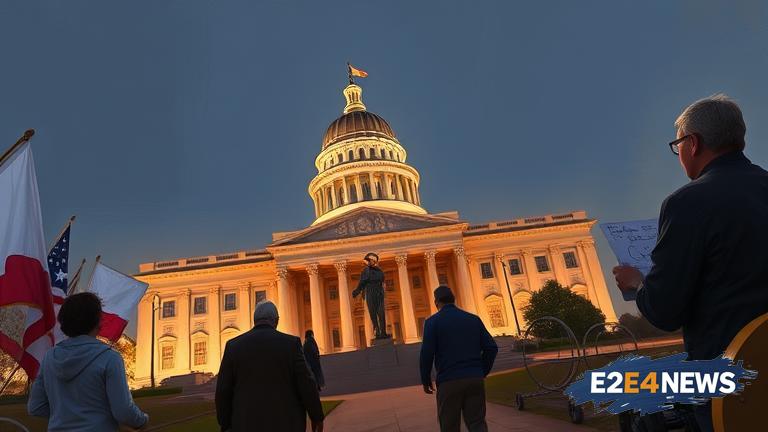The Texas House of Representatives has taken a dramatic step in response to the departure of Democratic lawmakers from the state. In a vote, the House authorized law enforcement to track down and arrest the missing lawmakers, who fled to Washington D.C. to prevent a vote on a voting restrictions bill. The bill, which is a priority for Republican Governor Greg Abbott, would impose new restrictions on voting in Texas, including limiting early voting and banning drive-thru voting. The Democratic lawmakers, who are mostly from the Houston and Dallas areas, argue that the bill would disproportionately affect minority voters and undermine democracy. By leaving the state, the lawmakers hoped to prevent the bill from being voted on, as the House requires a quorum of two-thirds of its members to be present to conduct business. The vote to track down the lawmakers was largely along party lines, with Republicans voting in favor and Democrats voting against. The move has sparked outrage among Democrats and civil rights groups, who argue that it is an attempt to intimidate and silence lawmakers who are standing up for their constituents. The Texas House has a history of contentious debates and dramatic actions, but this move is seen as particularly extreme. The Democratic lawmakers who fled the state have vowed to stay away until the special session of the legislature ends, which could be as long as 30 days. They have also filed a lawsuit in federal court to block the voting restrictions bill, arguing that it would violate the Voting Rights Act. The lawsuit names Governor Abbott and other Republican leaders as defendants. The situation has drawn national attention, with many seeing it as a test of the limits of democratic protest and the power of state governments to restrict voting rights. The NAACP and other civil rights groups have condemned the move, saying it is an attempt to disenfranchise minority voters. The ACLU has also weighed in, arguing that the bill would have a disproportionate impact on low-income and minority voters. The Texas Democratic Party has called the move a ‘shameful’ attempt to silence lawmakers and undermine democracy. The party’s chairman, Gilberto Hinojosa, said that the move would only serve to galvanize opposition to the voting restrictions bill. The Republican Party of Texas has defended the move, saying that the Democratic lawmakers are ‘abandoning’ their constituents by fleeing the state. The party’s chairman, Matt Rinaldi, said that the lawmakers should return to Texas and participate in the democratic process. The situation remains fluid, with the Democratic lawmakers showing no signs of returning to Texas and the Republican leadership vowing to press on with the voting restrictions bill. The outcome is far from certain, but one thing is clear: the battle over voting rights in Texas has only just begun. The move has also sparked a heated debate about the role of law enforcement in politics, with some arguing that it is inappropriate for police to be used to track down and arrest lawmakers. Others have argued that the move is a necessary step to maintain order and ensure that the democratic process can function. As the situation continues to unfold, it is clear that the stakes are high and the consequences could be far-reaching. The voting restrictions bill is just one of several measures that have been proposed in Texas and other states to restrict voting rights, and the outcome of this battle could have implications for the entire country. The Democratic lawmakers who fled the state have been hailed as heroes by some, who see their actions as a brave stand against a unjust law. Others have criticized them for abandoning their posts and disrupting the democratic process. Regardless of one’s perspective, it is clear that the situation in Texas is a complex and contentious one, with no easy solutions in sight.





